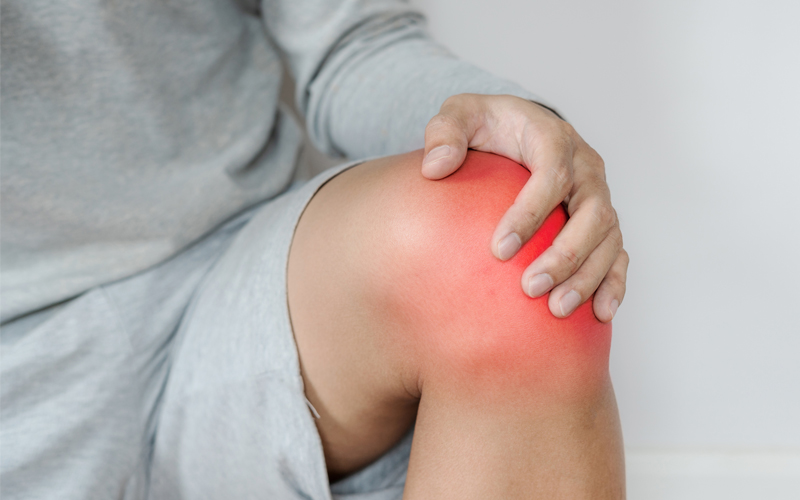Locking. Swelling. Pain. Clicking. When you feel any of these in your knee, it’s a sign the cartilage in your knee may be eroding. If treatments like rest, medication or physical therapy don’t work, you may benefit from a newer surgical procedure that helps people regrow their knee cartilage.
Orthopedic surgeon Peter Wang Jr., MD, with Upper Bucks Orthopaedics at Grand View Health is skilled in a technique called MACI. It transplants your body’s own cartilage-forming cells into your knee to help regrow damaged cartilage, relieve pain and increase range of motion.
MACI stands for matrix-induced autologous chondrocyte implantation. It’s a modern enhancement to ACI surgery, which orthopaedic surgeons have performed for more than 20 years.
“Clinical trials show MACI offers less pain and better range of motion for patients compared to microfracture surgery, which requires drilling into the bone” Wang said.
How MACI at Grand View Health Works
The MACI procedure works in three stages. First, patients undergo a biopsy that extracts cartilage-forming cells, called chondrocytes, from the body. Next, medical team members send your cells to a lab, where they’re embedded onto a collagen membrane and multiply.
Then at Grand View Health, on the day of surgery, a surgeon implants the collagen membrane into your knee. As you recover from surgery, the cartilage cells regenerate, forming new tissue to replace worn-out cartilage.
“Healthy cartilage helps cushion the bones in your knee and give you better movement, but when it erodes, it causes pain which can be severe,” Wang says. “With MACI, we can help restore people’s cartilage and help them get physically active again.”
Watch this video to understand more about MACI or about non-surgical ways to relieve knee pain.

